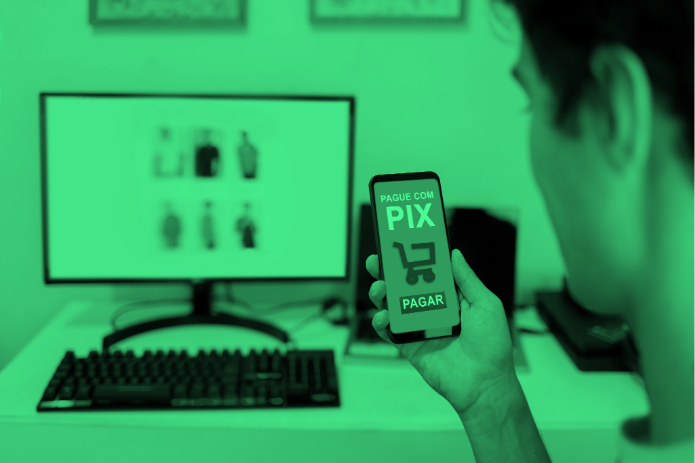The Instant Payment System (SPI) solidified its absolute leadership in Brazil in 2024, redefining how Brazilians conduct financial transactions. To give an idea, according to data from the Central Bank, 76.4% of the population adopted Pix as their primary payment method, surpassing debit cards (69.1%) and leaving physical cash in third place (68.9%). With impressive numbers, the payment method processed around 42 billion transactions during the year, moving over R$17.2 trillion.
This historic performance reflects not only the massive adoption by Brazilians but also Pix’s ability to meet the country’s main demands. Proof of this was the new record set on November 29, when the payment method reached 239.9 million transactions in just 24 hours, driven by the payment of the first installment of the 13th salary.
In this context, 2024 was also marked by innovations in the instant payment ecosystem, with facial recognition standing out as it brought even more security and convenience to the system. In addition to facilitating swift payments, the technology revolutionized the onboarding process for new customers, allowing users to verify their identities quickly and efficiently. By capturing facial images, the system validates information in seconds, eliminating the need for traditional and time-consuming methods, thereby expanding inclusion and trust in using Pix.
For Ariel Salles, Vice President of Technology at Avivatec, a leading company in technology solutions for businesses and the financial market, the implementation of facial biometrics is a milestone in instant payment security. “This method provides authentication that makes fraud attempts—such as using stolen or fake passwords—more difficult. Its application in instant payments ensures only the legitimate user can authorize transactions, making the process safer and more efficient. This is essential as digital transaction volumes grow, as it strengthens consumer trust and helps maintain the integrity of financial systems,” he comments.
Beyond these innovations, other cybersecurity measures were fundamental in protecting digital transactions. Multi-factor authentication (MFA) was widely adopted, reducing fraud risk by up to 99.9% and ensuring data protection during transmission and storage. Additionally, real-time transaction monitoring was crucial, enabling quick threat identification and neutralization.
Regulation and Proximity Pix
Another major milestone for Brazil’s instant payment system was the regulation and approval of Proximity Pix, which is already in the testing phase and will be available for all users starting February 5, 2025.
With NFC (near field communication) technology, Proximity Pix will enable fast and secure transactions simply by bringing devices like smartphones or cards close together, without requiring a password. Ideal for low-value payments, this new feature will bring greater speed and convenience, further expanding the tool’s adoption as the primary payment method in the country.
“NFC technology allows devices to communicate quickly and efficiently when brought near each other, without physical contact. This makes the payment process much faster, especially in everyday situations like shopping in stores or using public transport. The absence of passwords or PINs also makes transactions more convenient and swift, meeting the growing demand for simple and efficient payment solutions,” he concludes.
With these security measures and new technologies, 2024 solidified its place as a transformative year for instant payments in Brazil. Pix remains the leading payment tool, offering Brazilians greater speed, security, and convenience in their daily lives.


